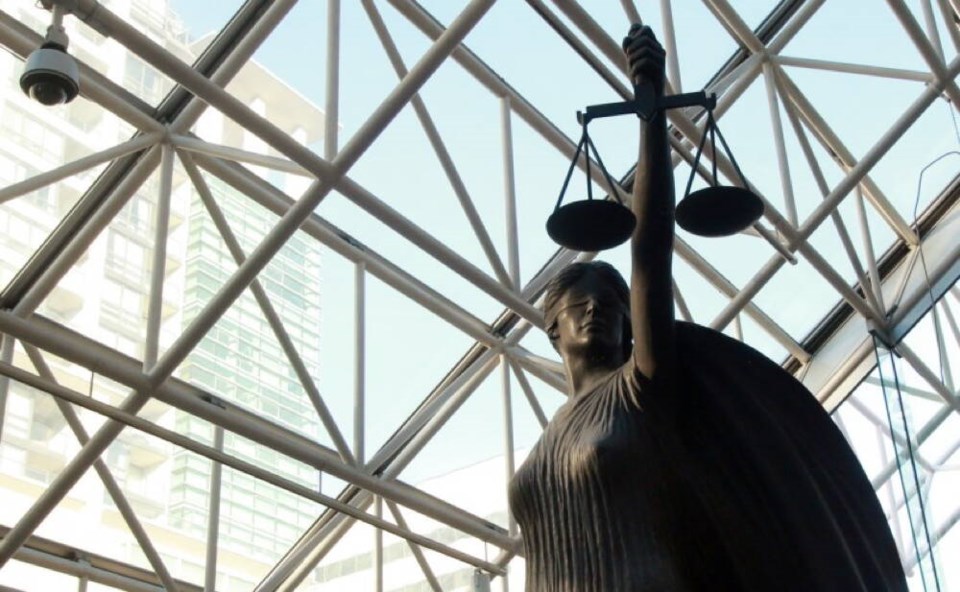A commentary by the first vice‑president of the Law Society of B.C.
There are innumerable reasons to oppose the B.C. government’s proposed Legal Professions Act (Bill 21), particularly the deleterious effects it will have on the independence of the legal profession.
However, the most visceral objection I have to Bill 21 is the government’s decision to include stigmatizing and discriminatory provisions to compel legal professionals to undergo forced medical treatment.
Within the 317 sections of this poorly thought-out and badly drafted bill, are harmful provisions about “health,” including in the definition of what it means for a legal professional to behave “incompetently.”
Section 68 initially defines “incompetently” with a focus on conduct that fails to meet standards. However, it goes on to define competence with specific reference to “health conditions.”
In doing so, Bill 21 makes unwarranted assumptions and creates false and stigmatizing connections between lawyers experiencing health conditions and their competency. We know from the national study on the psychological health of Canadian legal professionals that up to 50 per cent of legal professionals in Canada experience moderate-to-severe mental-health and substance use issues, at times.
That means roughly 7,000 lawyers in B.C. have had such experiences. However, only single-digit numbers of lawyers have their competency called into question in a given year.
Making and emphasizing a connection between competency and health conditions, as the government has done, is unwarranted and will inflict great harm both on individuals, and systemically.
The study also identified that nearly 50 per cent of legal professionals do not use the mental-health resources available to them even where they believe they may benefit from doing so. A large proportion of this group of professionals reported avoiding using resources specifically because they fear the regulator will find out. The provisions of Bill 21 will undoubtedly increase those concerns.
The Law Society of British Columbia has worked hard over the past six years to utilize an evidence-based approach to remove stigma and bias about mental-health issues from its processes.
Included in those efforts, the law society specifically excised consideration of health conditions from its admission processes and instead focused on the conduct of applicants. Conduct is an appropriate and sufficient trigger for regulatory attention, which avoids the stigma, discrimination and unintended consequences of inquiring into professionals’ health conditions.
Even more concerning is section 88 of Bill 21, which allows the regulator to “require the licensee or trainee to receive counselling or medical treatment” notwithstanding that the section also provides for a licensee’s practice being limited or suspended. In light of the suspension power, the public interest can be adequately safeguarded without the need to compel medical treatment.
Nevertheless, Bill 21 provides that a single person, the CEO, may unilaterally order a professional to undergo medical treatment, without limitation. This is an unnecessary power that will do more harm than good.
The draft legislation makes no provision for the confidentiality or anonymization of such orders, remaining silent on the privacy of medical matters.
The law society’s evidence-based efforts includes implementing the Alternative Discipline Process (“ADP”), a pilot program that diverts lawyers from the regular disciplinary process to one focused on the support and management of underlying health issues in a voluntary, confidential and collaborative manner.
ADP is an example of best practices and a regulatory approach that recognizes the evolving understanding of mental health and substance use issues. The reports of ADP’s success have been remarkable.
There is a wealth of evidence that coerced medical care is less likely to be effective. But, even more than that, it can do active harm both to individuals and to the legal professions at large. Not everyone is ready for a particular type of care, or care at a particular time — coerced care is patronizing, de-humanizing, and demotivating, and can imperil the success of subsequent voluntary supports.
The threat of coerced treatment, frozen in legislation, sends the message to all professionals experiencing mental health or substance use issues they are seen as less competent.
One of the great ironies is that Bill 21 is being touted as modernization of legal regulation, and yet, it not only falls back on outdated and disproven assumptions, but it regressively embeds them in legislation.
Both Premier David Eby and Attorney General Niki Sharma spent time as practising lawyers. They ought to understand the harm this approach will do.
They ought to have insisted on consultation with those who have expertise in mental health and substance use issues, including the law society. They ought to have insisted that the legislation honour the work already done in this area, rather than undermine it. Instead, the government has ensconced in legislation stigma, shame and discriminatory assumptions that will harm the legal professions and the public they serve.
>>> To comment on this article, write a letter to the editor: [email protected]




